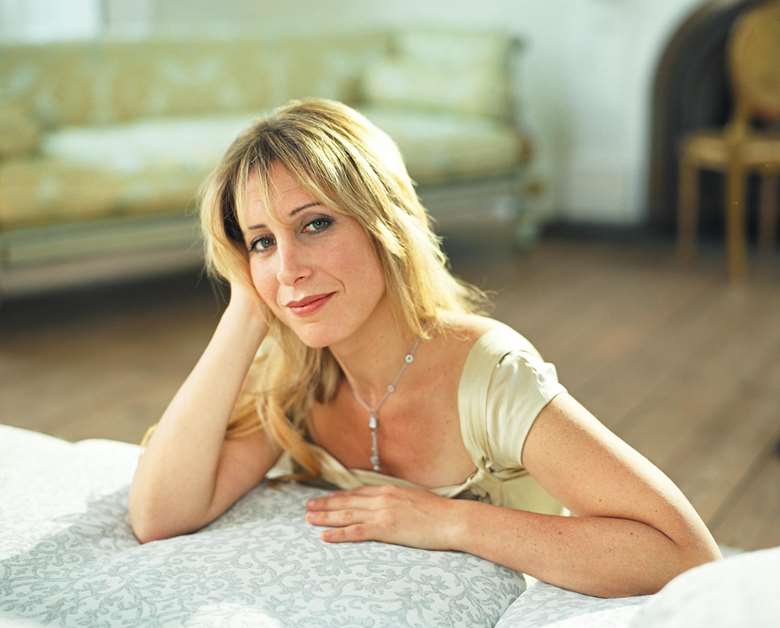Music as Transformation: Ingrid Fliter
Jeremy Nicholas
Friday, February 2, 2024
Ingrid Fliter talks about recordings that evoke special memories, with music that transports her to another dimension

Chopin is the reason I am here talking to you because Chopin is the reason I was born! My parents met when they were very young at a party in Buenos Aires. My father was a big music lover – he was a naval architect – but during his childhood and teenage years he discovered that he could really play the piano by listening. At that party he played the piano for the crowd, and my mother completely fell in love with him because he was playing Chopin waltzes and nocturnes. So that was the leitmotif for my life. I grew up listening to Rubinstein recordings at home. They played everywhere – in the kitchen, in the car, in the living room – these cassettes of Rubinstein’s ‘The Chopin I Love’, Volumes 1, 2 and 3. It simply became my life companion. That’s how I got involved with the piano and that’s how this way of playing got into my DNA.
Chopin | ‘The Chopin I Love’, Vols 1-3 | Arthur Rubinstein | RCA Red Seal
It’s hard for me to choose between the two Schubert and Schumann song-cycles – Die schöne Müllerin and Dichterliebe – because they were both the main pillars of my everyday passion and obsession while I was a student in Freiburg in Germany. They were the key to my interest in the German language. I learnt German through those poems, so I was able to say most of the beautiful phrases from Heine or Schiller but I was not able to say ‘Please give me a coffee’ or ‘Can I open a bank account?’ I really got obsessed because that’s part of my personality as well. These two cycles represent one of the happiest moments of my musical life, when I first understood the connection between the language, poetry and music, the tension, the drama and how these two geniuses take you to the most revealing places of human feelings. And the voice of Fischer-Dieskau was like the voice of a spiritual guide for me at that time.
Die schöne Müllerin Dichterliebe | Dietrich Fischer-Dieskau, Gerald Moore | Deutsche Grammophon, Cansos de Trobairitz
I don’t remember for what reason, but I was a student when I discovered the recordings by Hespèrion XX [now Hespèrion XXI] with Jordi Savall [music director] and [his wife, soprano] Montserrat Figueras. Now before I heard Hespèrion, I was not particularly keen on that kind of music but when I did discover it, I don’t know if I can describe myself as a believer in the afterlife or the reincarnation of something, but I do feel that somehow I lived in the time of the Renaissance. Somehow this voice spoke to me so deeply that I felt this connection, and living in Italy as well I got involved in various period music events and found that there was indeed something unexplainable, mysterious, that related to me. So again, I got obsessed. I couldn’t stop listening to that music.
Songs of the Women Troubadours, c1200 | Monserrat Figueras sop, Hespèrion XXI / Jordi Savall | Warner Classics
I cannot choose between the St John and St Matthew Passions. I love them both. But one thing I remember about them: when I’m crazy about some music, I put the stereo very high – very, very, very loud – listening to this music and singing above it. You can imagine – the neighbours and all that! I don’t think I have a good voice at all, but I felt, you know, the empowerment of singing together with them at a very high volume. Around that time in Italy, I was staying in the countryside in a villa built in the 1500s – it later turned out to be the home of my future in-laws. They lived upstairs. I was downstairs singing very loudly and I saw an enormous black snake coming from the garden towards me. It was enormous! I shouted crazily, desperately. My future husband was upstairs and heard me. ‘Oh, I think Ingrid is shouting.’ And his parents said, ‘No, she’s just singing.’
JS Bach: St John Passion; St Matthew Passion | Concentus Musicus Wien/Nikolaus Harnoncourt | Warner Classics
I found it very difficult to choose which Mahler to talk about, but the Third Symphony with Bernstein and the Vienna Philharmonic in their live recording takes you on a journey in which you start by being someone and you end up being completely transformed. For me this music opens the door of eternity. And I’m a very big fan of Bernstein because he embraces the totality as a musician, as a human being, as a communicator, as a philosopher, as a theatre man, as a poet. He is all together and understands that Mahler speaks to all of us. He’s so honest, you know? Revealing. There is no middle solution. It’s just extreme. I want to experience life the way I want to experience music. So for me it’s a testament of believing that music really is transforming. I cannot ever listen to those last seven minutes without having tears in my eyes.
Mahler: Symphony No 3 | Christa Ludwig mezzo-sop, Vienna Philharmonic/Leonard Bernstein






